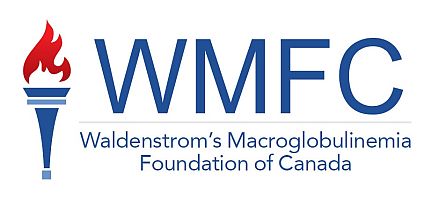On Dec. 23, 2020, our sister organization the IWMF issued a list of Q&A on the subject of Covid-19. The bottom line is: “When asked whether WM patients should be vaccinated for COVID-19, every WM specialist contacted agreed that it would be prudent to do so but to consult with your cancer doctor first.”
IWMF COVID-19 NEWS BRIEF – DECEMBER 2020
The coronavirus (COVID-19) pandemic has affected the global community, with each country developing safety protocols of different types and durations. We know that the IWMF community has many questions about the vaccine, and we hope this news brief offers helpful guidance. However, there remain more questions than answers at this point.
Are all WMers immunocompromised?
The impact for patients with blood cancers, and specifically WM, is of concern, as many WM patients may have some degree of immunocompromise, whether due to the illness itself, treatment for the disease, or both. However, the degree of immunocompromise varies considerably among individuals and should be discussed with your cancer doctor.
Are WMers at greater risk of coronavirus infection?
There is evidence to suggest an increased risk of contracting COVID-19 and more serious outcomes from infection in: 1) adults with cancer, especially blood cancer, and 2) those over the age of 60. These people may also experience more severe consequences from infection. Older people in general have immune systems that don’t function as effectively as when they were young, and blood cancers and treatments for cancer generally tend to depress parts of the immune system.
Should WMers get vaccinated for coronavirus?
As vaccines for coronavirus become available and as governments are developing different protocols for deploying the vaccines among the population, it is important to discuss the available options for your particular health situation with your own cancer specialist. The IWMF Physician Directory can help direct you to a specialized WM expert for consultation. Additionally, people who are in regular contact with WM patients, such as caregivers and family members, should be vaccinated, once it is possible for them to obtain the vaccine, to reduce the possibility of transmission to the WM patient.
Are coronavirus vaccines safe?
Vaccines are made available only after sufficient trials have been conducted and medical boards have reviewed the safety and efficacy of such vaccines. Currently, two coronavirus vaccines have received US Food and Drug Administration Emergency Use Authorization (and similar authorization in other countries). These vaccines, from Pfizer/BioNTec and Moderna, are both messenger RNA (mRNA) vaccines that use only a part of the protein from the outer spike of the COVID-19 virus and should be safe for use in immunocompromised patients. They cannot cause infection. Typical side effects of vaccination include arm soreness and mild fever of short duration. If you experience more serious side effects due to the vaccination, contact your doctor immediately.
Tips for protecting your health
- While you await your turn to receive the vaccine and until most of the population is vaccinated, it’s important to continue to adhere to social distancing and cleanliness guidelines:
- Wash your hands regularly for a full 20 seconds.
- Wear a face covering in indoor settings and anywhere else social distancing may be difficult – indoors or outdoors – where you may come into contact with others you do not normally interact with. Rule of thumb: if in doubt, wear a mask.
- Where possible, maintain 6 feet/2 meters of separation from people you do not live with.
- Follow your country/state/province guidelines throughout the pandemic during particular emergency situations.
- If you share your house with others, explain that you are particularly vulnerable due to your WM and impress upon them to closely follow all social distancing and cleanliness guidelines for your safety and wellbeing.
What if I’m in treatment?
As of this notification, there are no known contraindications to being vaccinated before, during, or after your WM treatment. However, it is important to discuss the matter with your cancer doctor to arrive at the most opportune time for you to receive the vaccine to ensure maximum effectiveness and to minimize against any adverse reactions that may occur.
Does WM treatment affect response to the vaccine?
Previous or ongoing treatment may impact response to COVID-19 vaccination; however, further studies are needed to better understand the impact of treatment on generating a productive immune response to the virus. This does not mean you should not be vaccinated; rather, your response may not be as optimal as the general population’s. WM patients undergoing vaccination may consider having follow-up antibody testing to determine if vaccination has produced an immune response. They should discuss this possibility with their local care provider.
Are in-person appointments safe?
If you’re concerned about going to the hospital or treatment center for regularly scheduled appointments and treatments because you are fearful of contracting the virus, it’s important to discuss your concerns with your health care team. In most cases, you’ll find that they are following strict protocols to ensure your safety.
The bottom line
When asked whether WM patients should be vaccinated for COVID-19, every WM specialist contacted agreed that it would be prudent to do so but to consult with your cancer doctor first.
